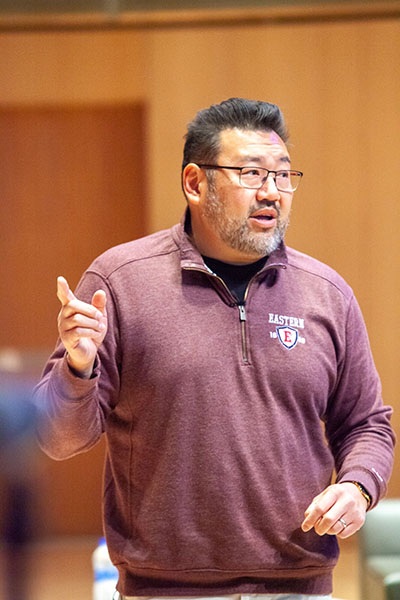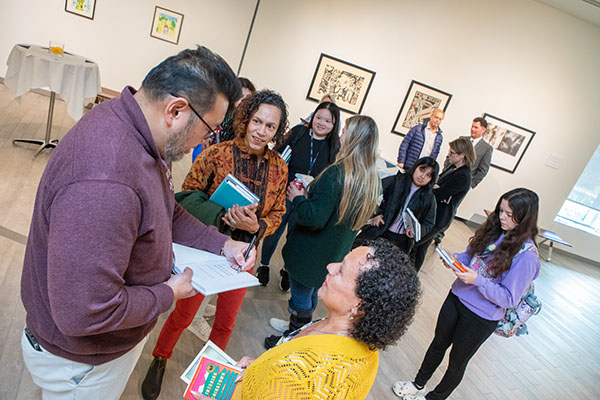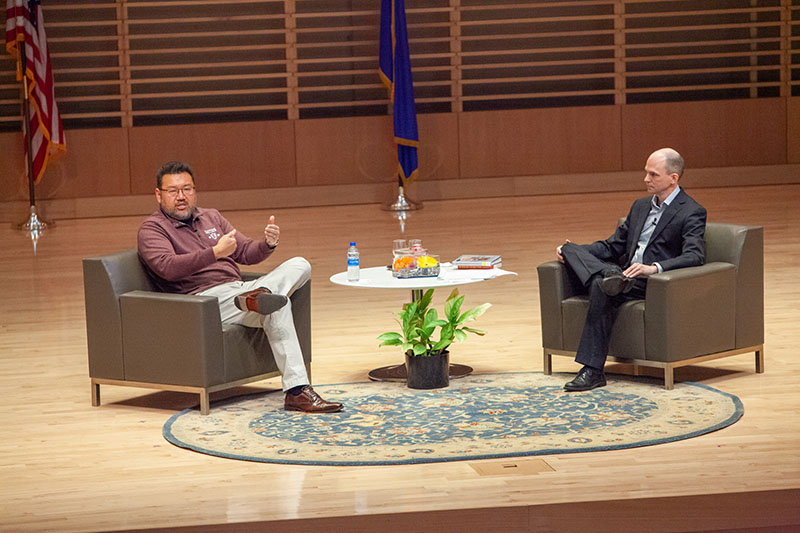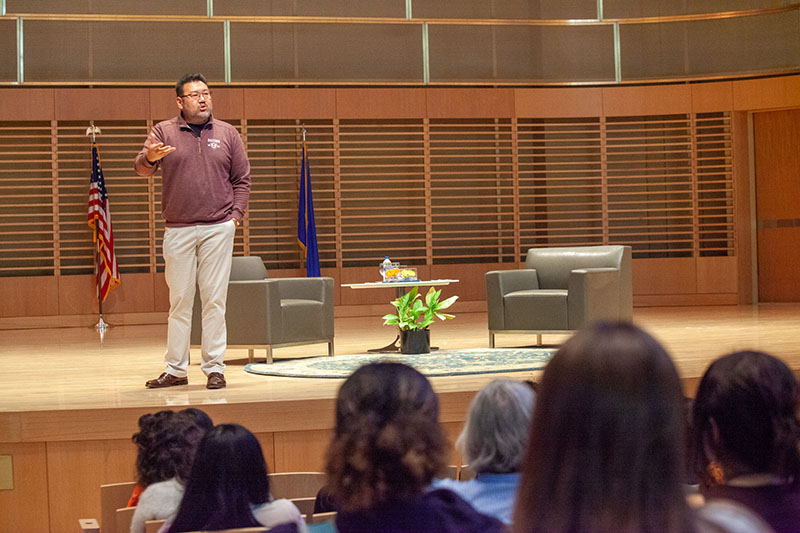- Apply
- Visit
- Request Info
- Give
‘What qualifies as American?’
CSCU President Terrence Cheng dissects model minority stereotype in ‘Big Read’ talk
Written by Michael Rouleau
Published on November 02, 2022
Eastern kicked off its National Endowment for the Arts (NEA) ‘Big Read’ program on Oct. 27 with a talk by Terrence Cheng, president of the Connecticut State Colleges and Universities (CSCU). Cheng discussed his experience as an author and an Asian American, and connected those identities to Eastern’s current Big Read book, “Interior Chinatown” by Charles Yu.
 Eastern is one of 62 communities nationwide selected to receive an NEA Big Read grant for the 2022-23 year, and as such is leading a reading program surrounding Yu’s award-winning novel. Published in 2020 and winner of the National Book Award for Fiction, “Interior Chinatown” considers the model minority stereotype and lack of on-screen representation for Asian Americans.
Eastern is one of 62 communities nationwide selected to receive an NEA Big Read grant for the 2022-23 year, and as such is leading a reading program surrounding Yu’s award-winning novel. Published in 2020 and winner of the National Book Award for Fiction, “Interior Chinatown” considers the model minority stereotype and lack of on-screen representation for Asian Americans.
During the Oct. 27 kick-off event, Cheng spoke about his novel, “Deep in the Mountains: An Encounter with Zhu Qizhan.” The book follows a struggling Chinese-American boy whose sense of identity is developed through the guidance of the great Chinese artist Zhu Qizhan.
“President Cheng is well positioned to lead (our state’s higher education system) due to his unique cultural lens,” said Eastern President Elsa Núñez in her introduction. As an author, she added, “The underpinnings of culture shine in his work.”
Cheng was 1-year old when his family emigrated from Taiwan to the United States. “My dad spoke no English and pumped gas. My mother waited tables. They (worked) to give me a great life and the tools I needed to succeed.”
Cheng said that for the majority his life, he’s lived as a model minority. This stereotype comes with the expectation that Asian Americans will be smart, successful and hardworking in their pursuit of the “American Dream.”
“By being a model minority, you perpetuate it,” he said. “You’re not doing anything to change the status quo.” In doing so, he added, “I’ve perpetuated racism in my own life.”

Referencing Cheng’s book, event moderator Ben Pauley, chair of the English Department, remarked on the complicated identity Asian Americans face. Pauley noted that the main character of “Deep in the Mountains”—a Chinese American boy—sticks out in both his hometown of New York City as well as his ancestral home of China. “In both places he is the ‘other,’” said Pauley.
Cheng agreed, noting that in the United States, he doesn’t quite “look” American and in China—not knowing the language or culture—he’s not quite Chinese either. “Where do Asians fit in? This is (also) one of the prominent themes of ‘Interior Chinatown.’”
Cheng used his biracial children to further illustrate his point. They have Asian-looking features and are often asked, “Where are you from?” said Cheng, adding that the answer is New York City. “What qualifies as American? It’s important we keep having that conversation. We’re never going to get better as a society if we don’t have those conversations."




